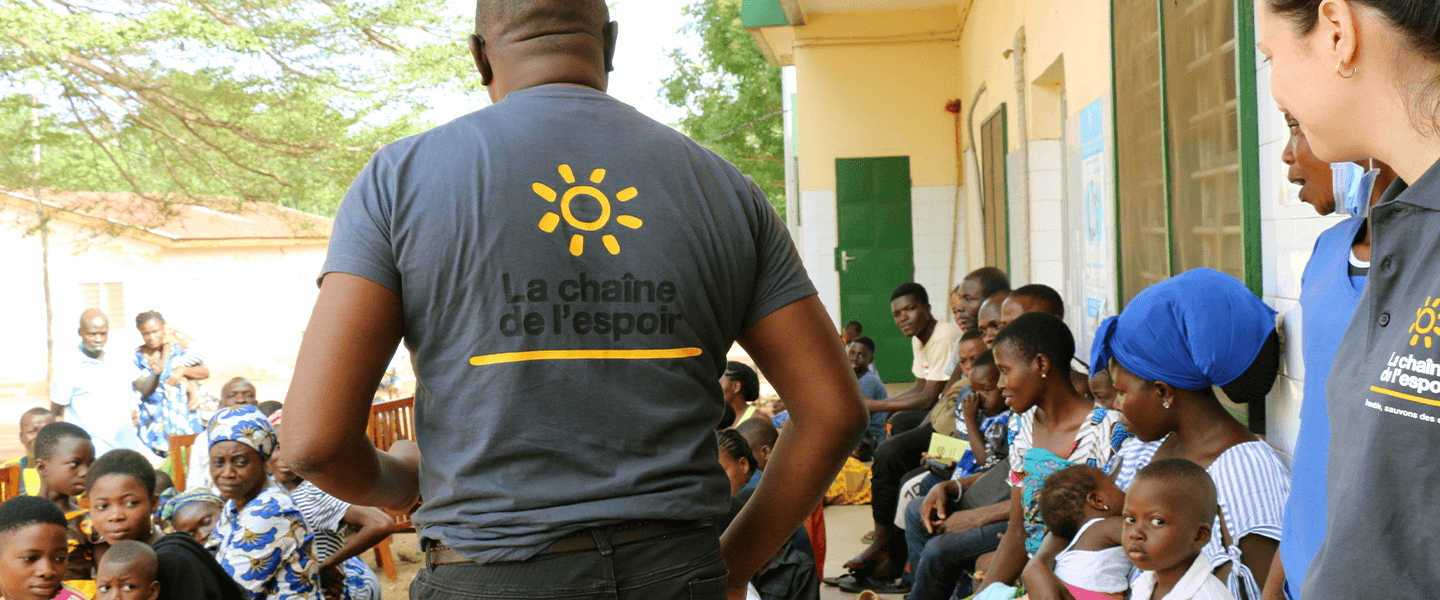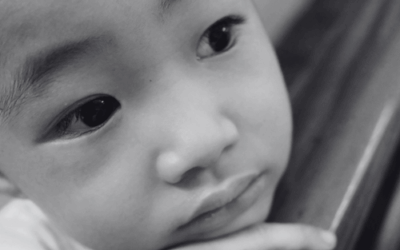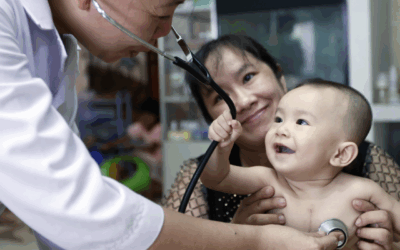International Day of Non-Violence 2025
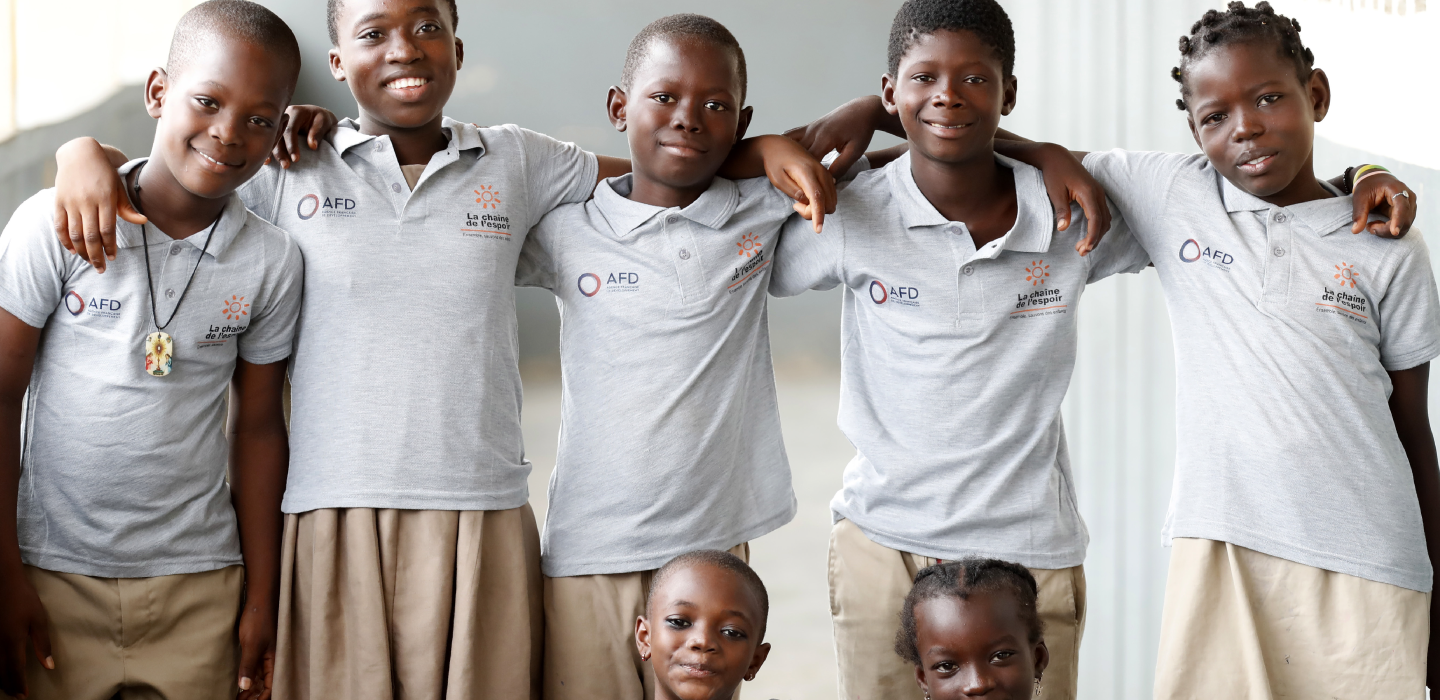
What is the International Day of Non-Violence?
Created in 2007 by the United Nations General Assembly, the International Day of Non-Violence is held every October 2, the anniversary of Mahatma Gandhi’s birth. An emblematic figure of peaceful resistance, he inspired entire generations with his commitment to social justice and dialogue.
The aim of this day is clear: to spread the universal message of non-violence, tolerance and mutual respect. It encourages governments, organizations and citizens to reflect on their behavior and take action to build more peaceful and inclusive societies.
Mahatma Gandhi
International Day of Non-Violence: promoting non-violence in Togolese schools
Since 2019, the “Ma Santé, Mon École : un enjeu collectif au Togo” project, led by La Chaîne de l’Espoir and carried out in collaboration with three local associative partners (Jeunesse et Avenir Togo, Wash Volunteers and Nyagbé), and financed by AFD as well as the IPSOS and GEOTEC foundations, has been acting on several fronts to improve the school life of schoolchildren:
- setting up and supporting educational clubs,
- training for educational staff on key school health issues (water, hygiene, sanitation, sexual and reproductive health, non-violence, prevention of domestic accidents, menstrual hygiene, prevention of substance-related disorders, etc.),
- student awareness,
- construction and rehabilitation of health infrastructures,
- early detection of learning disabilities.
As part of this international day, La Chaîne de l’Espoir is highlighting non-violence in the school environment: this concerns all the relationships that structure the life of the school – between students, between adults and students, and between adults (teaching staff and school community).
Non-violence is not reduced to the absence of physical violence; it also includes verbal, psychological, sexual or institutional violence, often more discreet but just as deleterious to the school climate.
Violences physiques
Bousculades, croche-pieds, coups de poing, bagarres, mutilations (blessures
volontaires), autres agressions corporelles (ex.arracher des vêtements)
Violences verbales
Moqueries répétées, injures, insultes, propos humiliants ou dévalorisants, lancer ou colporter
des rumeurs, menaces verbales
Violences psychologiques
Violences sexuelles
Harcèlement sexuel (gestes, paroles, regards insistants), attouchements non consentis, commentaires déplacés, intrusion dans
l’intimité (ex. soulever une jupe), prise de photos ou vidéos à caractères sexuels sans consentement
Violences institutionnelles
Humiliations publiques par un adulte ou un groupe, discrimination par omission (ne pas faire participer un élève, l’ignorer), inégalités de
traitement (favoritisme, injustice répétée)
International Day of Non-Violence: Training, awareness-raising and empowerment
In this project, talking about “non-violence” doesn’t just mean reacting to violence or preventing conflict; it means proposing an educational framework based on respect and listening.
That’s why La Chaîne de l’Espoir offers training courses for teachers to raise awareness of the different forms of violence (psychological, verbal or sexual) that adults can inflict on pupils.
These interventions are based on the rights and duties of the child, and invite teachers to question their daily practices and consider non-violent teaching alternatives.
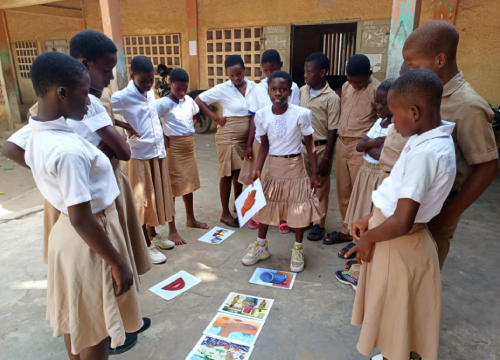
By 2024, 157 teachers had received training in alternative, non-violent educational methods.
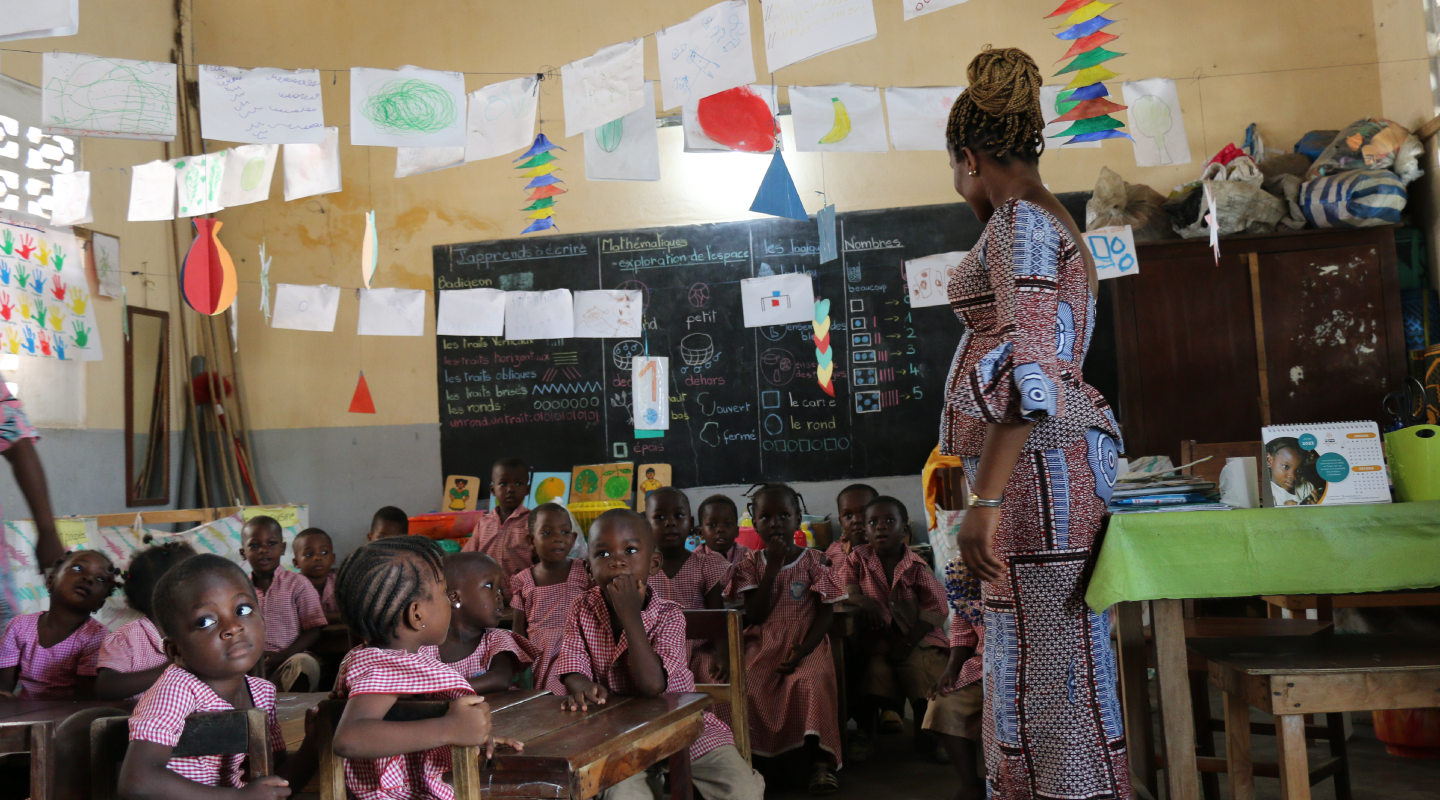
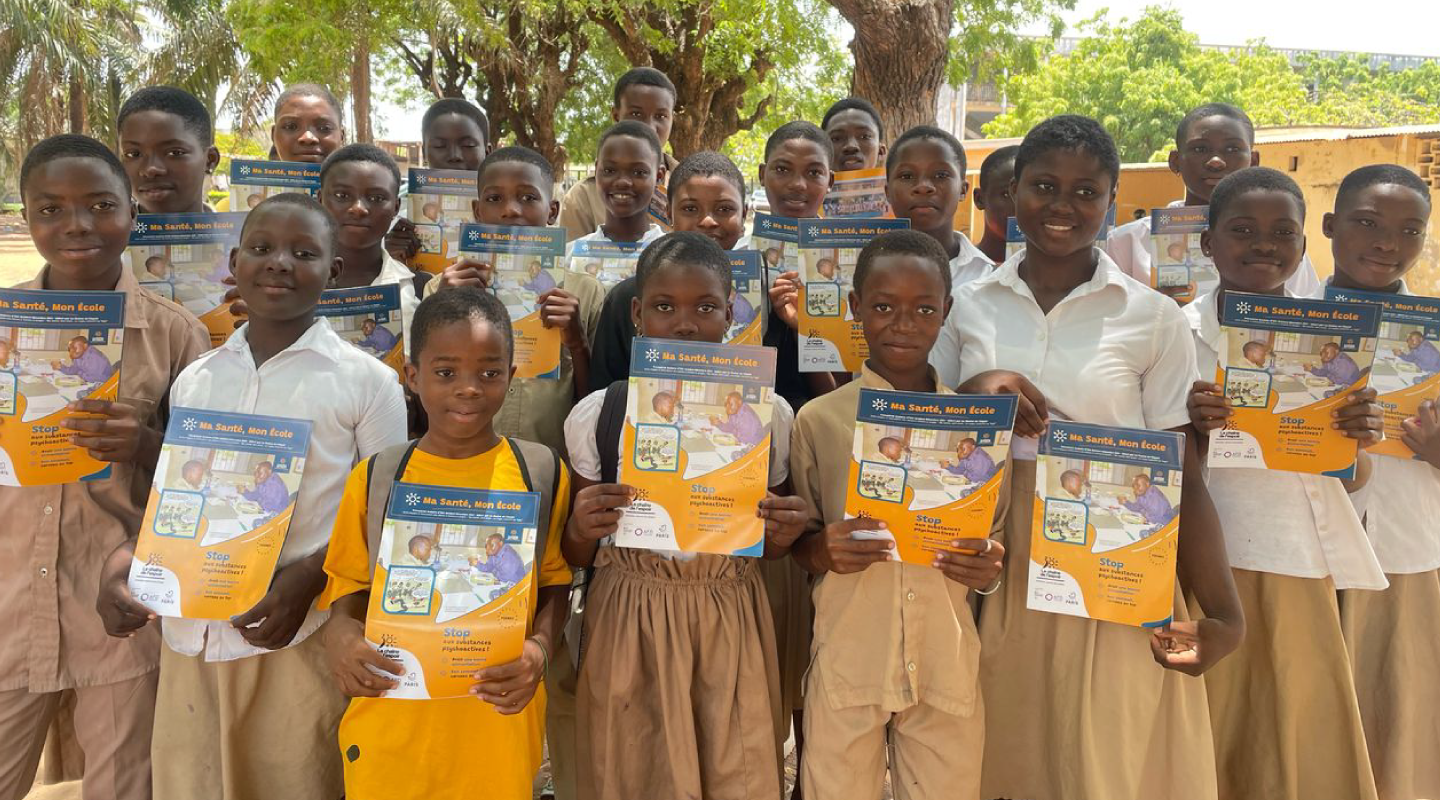
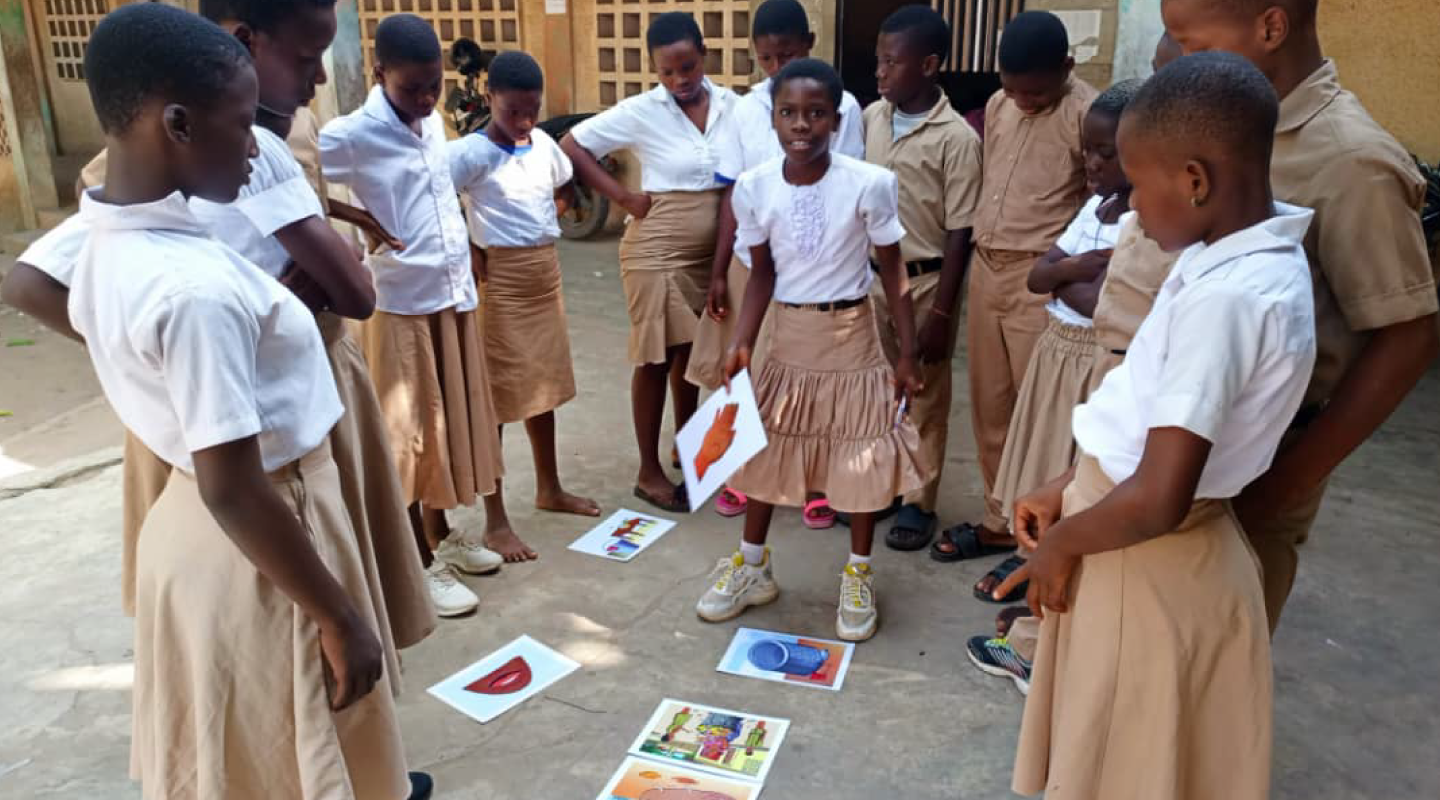
To put the principles of non-violence into practice in schools, La Chaîne de l’Espoir in Togo has created a “Non-Violence” educational club, a space for commitment and exchange between peers, run by pupils for pupils.
Our activities are based on two main pillars:
- Group talks in class (15 minutes, once a month) led by peer educators on key themes: fighting, teasing, insults, physical aggression, sexual harassment…
- Individual peer interviews when inappropriate behavior is observed: a peer educator engages in a caring exchange with the pupil concerned to help him or her become aware of the impact of his or her actions.
How to take part in the International Day of Non-Violence 2025?
With your support, La Chaîne de l’Espoir can strengthen and extend its actions to protect and support even more children who are victims of violence.
Thanks to all the links in this chain of solidarity, thousands of children in Togo have already been made aware of the problem, protected and supported.
Find out more about the International Day of Non-Violence

